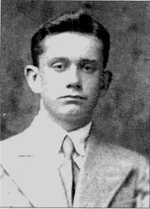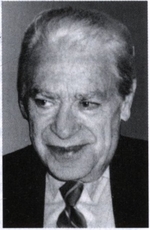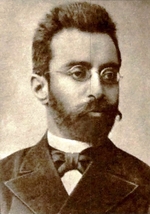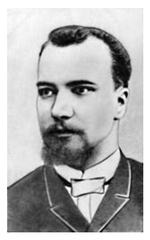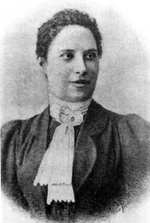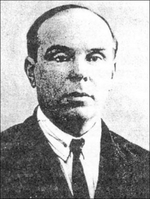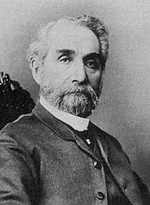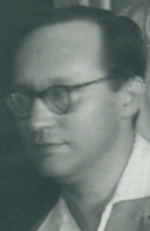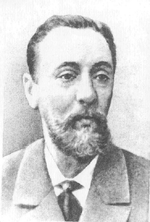Articles
Kazansky Boris (1889–1962)
Kazansky Boris (1889–1962) – philologist, specialist in Classical literature, translator, writer.
In 1913, he graduated from the St. Petersburg University. In 1914-1917, he worked at the Public Library on various positions. In the spring of 1917, K. passed through his Master exam and was sent by the Ministry of Education to Perm’, to make lectures at the newly organized university; there he became Professor of the Chair of Classical Philology of the Historical and Philological Faculty. He was one of the founders and active participants of the Society of Historical, Philosophical, and Social Studies at the Perm’ University.
Read More
Kazhdan Aleksander (1922–1997)
Kazhdan Aleksander (1922–1997) – historian of Classical culture, specialist in Byzantine studies.
In 1939, he entered the Moscow State University; in 1941, because of bad seeing, he was not assigned to the Army and was evacuated to Ufa together with his parents (his father was a leading specialist in the technologies of motor oils and military technique); there K. worked at the Institute of Aviation Fuel and Oils, at the same time studying by correspondence at the Ufa Teachers-Training Institute (graduated from it in 1942). In 1943, he went to the post-graduate courses of the Moscow State University, then to the post-graduate courses of the Institute of History of the Ac. of Sc. of the U.S.S.R.
Read More
Kerensky Vladimir (1868 ‒ not earlier 1927)
Kerensky Vladimir (1868 ‒ not earlier 1927) – ecclesiastic historian and theologian, specialist in comparative theology. Cousin of А. F. Kerensky.
In 1883, after the graduation from the Simbirsk Spiritual School, he enrolled to the Simbirsk Spiritual Seminary (1889), and then – to the Kazan’ Spiritual Academy – he graduated from it in 1893. In 1894, he became Master in Theology for his thesis ‘Old-Catholicism, Its History and Inner Evolution, Particularly in the Dogmatic Aspect’. In 1904, he got Doctor degree in Theology for his thesis ‘The School of Richley’s Theology in Lutheranism: Research in the Field of the Newest Lutheran Dogma’. Active State Councilor (1903).
Read More
Khakanov (Khakhanashvili) Aleksandr (1866‒1912)
Khakanov (Khakhanashvili) Aleksandr (1866‒1912) – ethnographer, philologer, historian.
After the gymnasium in Tiflis, he enrolled at the Historical and Philological Faculty of the Moscow University; he graduated it in 1888, Since 1900, he was Ass. Docent of the Moscow University, where he made lectures in the history of Georgia and Georgian literature. Professor of the Lazarev Institute of Oriental Languages. He studied Georgian manuscripts, translated texts.
Read More
Kharusin Nickolay (1865–1900)
Kharusin Nickolay (1865–1900) – ethnographer.
After the gymnasium, he enrolled at the Legal Faculty of the Moscow University. In 1890, he quitted the university and got the degree of Candidate in History in 1893 only, graduating from the Yurievsky University by correspondence. He has made field ethnographical expeditions to Siberia, the Caucasus, the Crimea, the North-West of Russia since 1886.
In 1892, he went to Europe; in Germany and France he studied ethnographic collections of leading museums and visited lectures at several universities.
Read More
Kharusina Vera (1866–1931)
Kharusina Vera (1866–1931) – ethnographer.
In 1882, she entered the Classical Female Gymnasium of S. N. Fisher passing exams for the fourth grade at once, and finished it with a golden medal in 1886.
In 1887, he went to an expedition to the Russian North with her brother N. N. Kharusin. In the course of that expedition, she started collecting ethnographic material which built the foundation for her research and popular essays; she put a special attention at beliefs and rites of various peoples,
In 1892-1893, Kh. with her brother Nickolay and sister Helena went to Paris, where she visited lectures in the history of religion, Church, family, and general ethnography. In 1907, she enrolled at the Moscow Archeological Institute as a student; in the same year she got an invitation to make lectures at that institute. She was the first woman in Rusian who got a position of Professor in Ethnography.
Read More
Khudiakov Mikhail (1894–1936)
Khudiakov Mikhail (1894–1936) – archeologist and ethnographer, specialist in the history and culture of the peoples of the Volga Region.
Having finished a gymnasium in Kazan’ with a golden medal, in 1913, he enrolled at the Historical and Philological Faculty of the Kazan’ University. He graduated the University in 1918, worked as a school teacher, librarian of the Society of History, Archeology and Ethnography at the Kazan’ University. Since 1919, he was Curator of the Archeological Sector, later – Head of the Historical and Archeological Department of the Govern Museum of Kazan’; and then he taught at the North-Eastern Archeological and Ethnographical Institute. Since 1920, he worked at the Museum Department of the Narkomat of Education of the Tartar A.S.S.R.; he was also one of the organizers and secretaries of the Research Society of the Tartar Studies. Because of political reasons, in 1923, he had to leave Kazan’.
Read More
Khvol’son Daniel (Joseph) (1819 [1822]–1911)
Khvol’son Daniel (Joseph) (1819 [1822]–1911) – Russian Orientalist, specialist in Semitic Studies, historian of religion.
He got traditional Hebrew education, In yeshiva he secretly read non-recommended philosophical texts by Maimonides. By the age of 18, he learnt German, French, and Russian languages by himself and went to Riga on foot, and then to Breslau, where he became a disciple of a Reformist Rabbi and one of the founders of Wissenschaft des Judentums, Abraham Geiger. In four years Geiger helped Kh. to prepare for exams for the course of gymnasium and to enroll at a university.
Read More
Kinzhalov Rostislav (1920—2006)
Kinzhalov Rostislav (1920—2006) – historian, ethnographer, specialist in the culture of aboriginal peoples Northern and Southern America, writer.
In 1941-1942, he was Comsomol leader of a military hospital. In 1942, he entered the Chair of Classic Philology of the Leningrad State University, which was located in the city of Saratov in evacuation. At the same time, he entered the Theoretical Composition Faculty of the Leningrad Conservatoire, which was also located also in Saratov, but his passion to philology happened to be stronger. In 1944, he moved to Leningrad, as a student of the university; he graduated from it in 1947. During his studies he started to work at museums: in 1943-1944, in Saratov - at the Museum of Fine Arts named after A.N. Radishchev; in 1945, in Leningrad, he started to work at the State Hermitage.
Read More
Kirpichnikov Aleksander (1845–1903)
Kirpichnikov Aleksander (1845–1903) – philologist, historian of literature.
He fifnished the Fifth Moscow Gymnasium and enrolled at the Historical and Philological Faculty of the Moscow University; he graduated from it in 1865, and became a teacher of that gymnasium, where he learnt. Then, in 1871, he went to Germany, where he defended his Master thesis in Literature ‘An Attempt of Comparative Studying Western and Russian Epics: Poems of the Lombardian Cycle’ (publ. in Moscow, 1873).
He was invited at the Chair of the History of World literature at the Kharkov University (1873-1877). In 1878-1879, he travelled in Europe, in 1879, he defended his Doctor thesis ‘St George and Egorius the Brave: Research in the Literary History of a Christian Legend’ (publ. in St. Petersburg, 1879) at the St. Petersburg University.
Read More
Showing 111-120 of 351 items.

